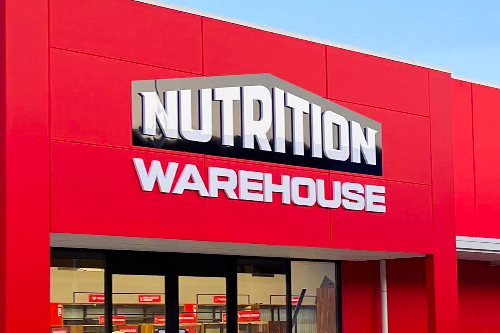Protein: The Building Block of Life
Protein, one of the three macronutrients (along with carbohydrates and fats), is essential for our bodies. It's composed of smaller molecules called amino acids, which are the fundamental building blocks of life. These amino acids play numerous vital roles in the body, from forming enzymes and neurotransmitters to assisting with various other functions.
One of the primary roles of protein is to build and repair tissues, including muscles, tendons, skin, and organs. Additionally, proteins help form essential molecules like enzymes, neurotransmitters (such as serotonin and dopamine), and hormones.
While our bodies can produce some amino acids, others must be obtained through our diet. These are known as essential amino acids. There are nine essential amino acids: histidine, isoleucine, leucine, lysine, methionine, phenylalanine, threonine, tryptophan, and valine. Three of these – leucine, isoleucine, and valine – are classified as branched-chain amino acids (BCAAs). BCAAs are particularly important for building lean muscle, reducing exercise-induced fatigue, and preventing muscle wasting.
Complete vs. Incomplete Proteins
Proteins are categorised into two main types: complete and incomplete.
Complete proteins contain all nine essential amino acids. Animal-based proteins like beef, lamb, pork, chicken, fish, eggs, and dairy products are excellent sources of complete protein. Plant-based complete proteins include soy products, quinoa, and amaranth.
Incomplete proteins lack one or more essential amino acids. You can still obtain all the necessary amino acids by combining different incomplete protein sources. Examples of incomplete proteins include nuts, nut butter, legumes, beans, lentils, wheat, rice, oats, and buckwheat.
How Much Protein Do I Need?
The recommended daily protein intake varies depending on several factors, including age, gender, weight, and activity level. According to the Recommended Dietary Allowance (RDA) set by the Institute of Medicine, adults need 0.8 grams of protein per kilogram of body weight. However, this might not be sufficient for athletes and individuals with specific fitness goals.
If you're struggling to meet your protein needs through your diet, consider adding a high-quality protein powder. This can be a convenient and delicious way to supplement your protein intake.
Protein Intake for Different Fitness Goals
Muscle Building: A higher protein intake is recommended for those aiming to increase muscle mass. Studies suggest that consuming 1.6-2.2 grams of protein per kilogram of body weight can support muscle growth and recovery.
Weight Maintenance: If your goal is to maintain your current weight, consuming the RDA of 0.8 grams per kilogram of body weight is generally sufficient.
Weight Loss: While protein can aid in weight loss by promoting satiety and reducing overall calorie intake, focusing on a balanced diet and calorie deficit is essential.
Calculating Your Protein Needs
To determine your specific protein needs, you can use the following formula:
Protein intake (grams) = Body weight (kilograms) x Protein requirement (grams per kilogram)
Example: For a 70 kg (154 lb) person aiming to build muscle, the daily protein requirement would be:
Protein intake = 70 kg x 1.8 grams/kg = 126 grams of protein per day
Protein is a vital macronutrient that plays a crucial role in various bodily functions, from building and repairing tissues to supporting immune function. It's essential for athletes and fitness enthusiasts, as it helps build and maintain muscle mass.
Key Takeaways About Protein:
- Protein is essential for building and repairing tissues.
- The recommended daily protein intake varies based on age, gender, weight, and activity level.
- Athletes and individuals with specific fitness goals may require higher protein intake.
- To calculate your protein needs, use the formula: Protein intake = Body weight x Protein requirement.
- Consult with a registered dietitian or healthcare professional for personalised guidance.
- By understanding your protein needs and incorporating adequate protein sources into your diet, you can support your fitness goals and overall health.
References
International Society of Sports Nutrition (ISSN)American College of Sports Medicine (ACSM)
Dietitians of Canada








































